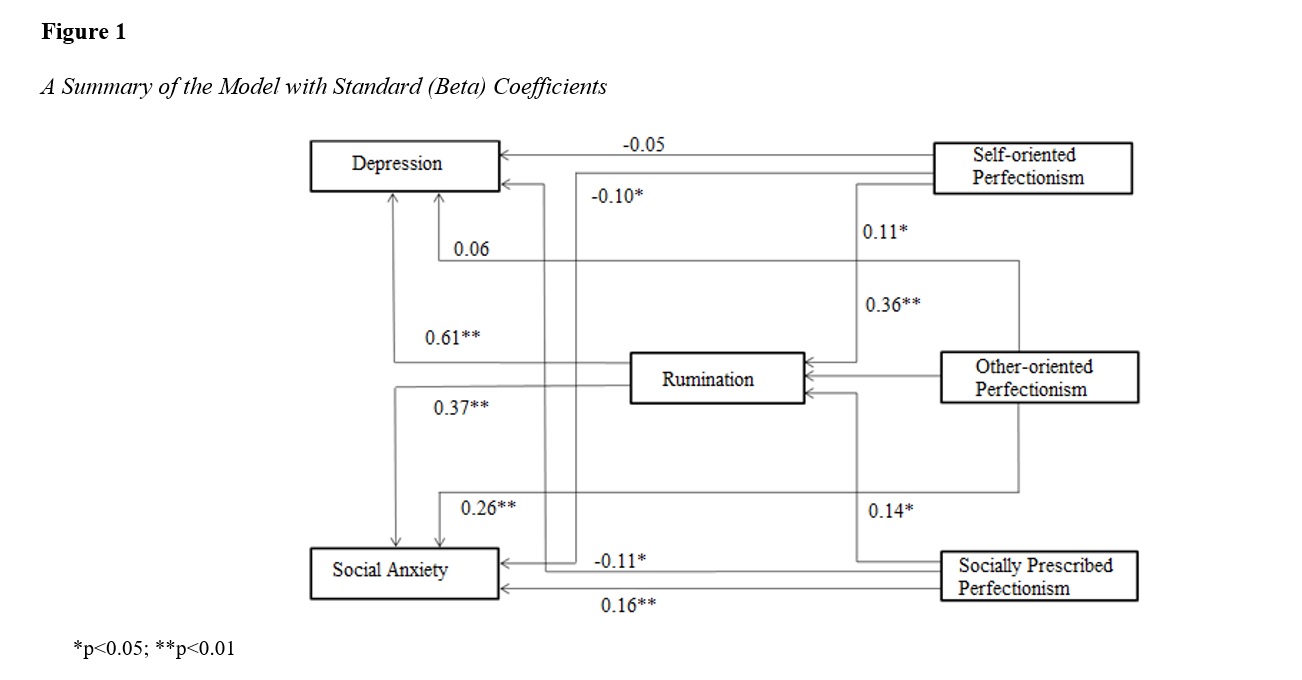The Relationship between Perfectionism and Depression and Social Anxiety in Social Media Users: Emphasizing the Mediating Role of Rumination
Keywords:
Perfectionism, Rumination, Depression, Social AnxietyAbstract
Objective: This study aimed to examine the relationship between perfectionism and depression and social anxiety among social media users, with an emphasis on the mediating role of rumination.
Methods and Materials: The population included social media users with a Bachelor's degree or higher in 2020. A total of 430 individuals (312 women, 118 men) were selected through voluntary sampling and responded to the Multidimensional Perfectionism Scale of Tehran (Besharat, 2007), the Ruminative Response Style Scale (Nolen-Hoeksema & Morrow, 1991), the Beck Depression Inventory – Second Edition (Beck et al., 1996), and the Social Phobia Inventory (Connor et al., 2000).
Findings: According to Pearson's correlation test results, there is a positive relationship between dimensions of perfectionism and rumination, and between rumination and both depression and social anxiety. There is a positive relationship between dimensions of perfectionism (self-oriented, other-oriented, and socially prescribed) and depression, and two dimensions of perfectionism (other-oriented and socially prescribed) have a positive relationship with social anxiety. Path analysis results showed that perfectionism explains 16% of the variance in rumination, and both perfectionism and rumination explain 43% of the variance in depression, and finally, perfectionism and rumination explain 31% of the variance in social anxiety.
Conclusion: Therefore, rumination plays a mediating role in the relationship between dimensions of perfectionism and both depression and social anxiety.
Downloads

Downloads
Additional Files
Published
Issue
Section
License
Copyright (c) 2024 Mohtaram Nemat Tavousi (Author); Nasim Seyf Hashemi (Corresponding Author)

This work is licensed under a Creative Commons Attribution-NonCommercial 4.0 International License.














